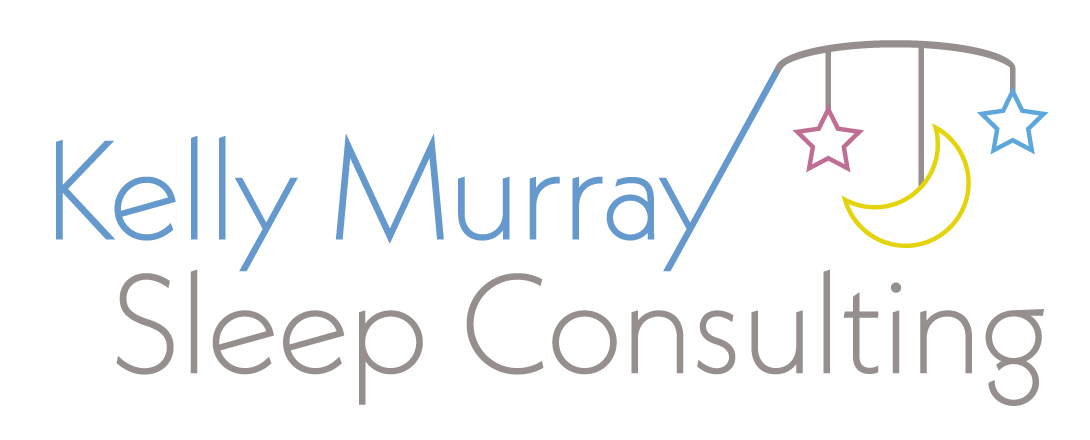Today, I'm going to explore one of the most frequently asked questions for my sleep Q&A. I get this question so frequently that I decided that I am going to create this post to answer it! That question is:
How do I know my baby is ready to move to a one nap schedule?
First, let’s get some facts straight so you know when your baby is ready.
Now, I don't think it's that parents don’t know what the appropriate age is. (If you do a quick Google search, you’ll find that babies typically transition to a one nap schedule somewhere between 14-15 months. I think that the reason why there’s so much confusion is that babies tend to show signs a lot earlier than that! I even dedicated a blog post on how MUCH sleep babies need depending on their age to debunk some common myths… you can read more about that here→)
So, when exactly DO babies start to take longer naps?
Is your baby taking a longer time to fall asleep?
Typically around the 10-12 month mark, babies will start taking a long time to fall asleep — so, instead of falling asleep within 10 minutes, it’ll begin to take them 30 minutes to fall asleep.
Is your Baby Skipping Naps or Waking Up Early in the Morning?
Also, they’ll start skipping naps altogether (it’s usually the second nap). They may also start waking up early in the morning — hello 5 AM! — or waking up overnight. Parents will tend to think, “Well, my baby must be ready for a one nap schedule.” I know that when Braden was 12 months, I thought the same thing. But, little did I know that there was a lot going on at that 12 month mark from a developmental standpoint.
Developmental Milestones Can Affect Your Baby’s Sleep Schedule
Let me explain why we see all of these issues — when it comes to naps, typically — around a year:
First: The amount of sleep your baby actually needs begins to decrease around a year of age.
Instead of needing 12-16 hours of sleep in 24 hours — once a baby is about a year old, their sleep needs decrease to 11-14 hours.
Second: There’s a lot going on from a cognitive perspective in terms of your baby’s development.
Around a year, a baby starts to develop the ability to determine sequences. And so, they know that there's going to be a pattern and things are going to happen next — and that affects the way that they play (because that’s how they learn — through play!) So, what you’ll notice is that your baby starts to stack blocks, look at books — they want to examine sequences during the day.
Third: From a physical standpoint, babies are typically gearing up to walk.
We all know it’s an exciting time period for parents — so just imagine how exciting it is for a baby to learn to walk! So as a result, all they want to do is practice, practice, practice!
Finally: Some babies are starting to talk!
So again, all they want to do is practice, practice, practice!
Because of all these changes, babies become over-stimulated and disinterested in sleep.
So, you're probably thinking, “Well, that's fine and dandy, but what do I do to get through this time period?” Let me explain what you need to do in the meantime:
Tips On How To Get Your Baby To Transition To A One Nap Schedule
1: Keep the two nap schedule
You have to trust me on this one. I actually transitioned my son, Braden, early during this time period and it blew up in my face. If you move to a one nap schedule too soon, your baby's going to become overtired and there’s going to be a huge gap between the first nap and bedtime. And so, as a result, your baby’s body is going to start producing cortisol to fight the fatigue. When our bodies sense that we’re overtired, our bodies go into protective mode — and our bodies want to be able to stay alert! — so, here comes the cortisol to keep us awake (you can read more about how cortisol affects sleep here→). What happens then is your baby has all this cortisol in their system and it can lead to more sleep issues because they’re even more overstimulated. So, maintain a two nap schedule until your baby is closer to 14 months.
2. If your baby is an independent sleeper (meaning they’re falling asleep on their own), resist the urge to assist your baby in falling asleep or going back to sleep
Because they don't need YOU to do that — THEY have the skills! If you start assisting, what's going to happen is: you're going to create a habit that you're then going to have to break. And you're going to have to redo any sleep training that you did to get your baby to the point where they’re independent.
3: Be consistent
I wouldn't really change things much in terms of your baby’s routines. I would keep your bedtime routine. I may adjust their napping schedule just a little bit. I would move the first and second nap later by a half hour and then maybe bedtime. If your baby skips their second nap, I would just move bedtime up. But you want to be consistent otherwise. Stick with your routines and the way you put your baby to sleep. Because that is going to actually make your baby feel more secure and they’re going to be less likely to start pushing those boundaries around bedtime and refusing to fall asleep (even more so than they currently are!)
4: Implement crib hour.
If your baby is having a hard time falling asleep — and staying asleep — just make sure that they stay in their crib for an hour. That way, you don’t send the signal to your baby that if they start protesting their nap or waking up after a half hour, you're going to run in there and swoop them up. Because if you start doing that, then your baby’s going to protest even more. So as long as they are in their bedroom — they may be walking around, babbling, moving around, they might be crying here and there — they’re still getting a little bit of rest. And don't sweat it if your baby starts only taking a 30 minute nap, it’s better than no nap at all. So at least aim to keep your baby in their crib for that hour in the morning and the afternoon.
Although I know this regression is very stressful, just know that it's normal, and try to take comfort in the fact that your baby is developing appropriately. So hang on to that two nap schedule until they're at least 14-15 months. You will thank me!
LET’S GET YOU TUCKED IN
Book a 15-minute complimentary call today. We’ll chat about your current situation and how my program could benefit you.
Sweet Dreams…
Kelly Murray is a certified sleep coach and an award-winning pediatric sleep consultant based in Chicago offering sleep coaching services nationwide.















